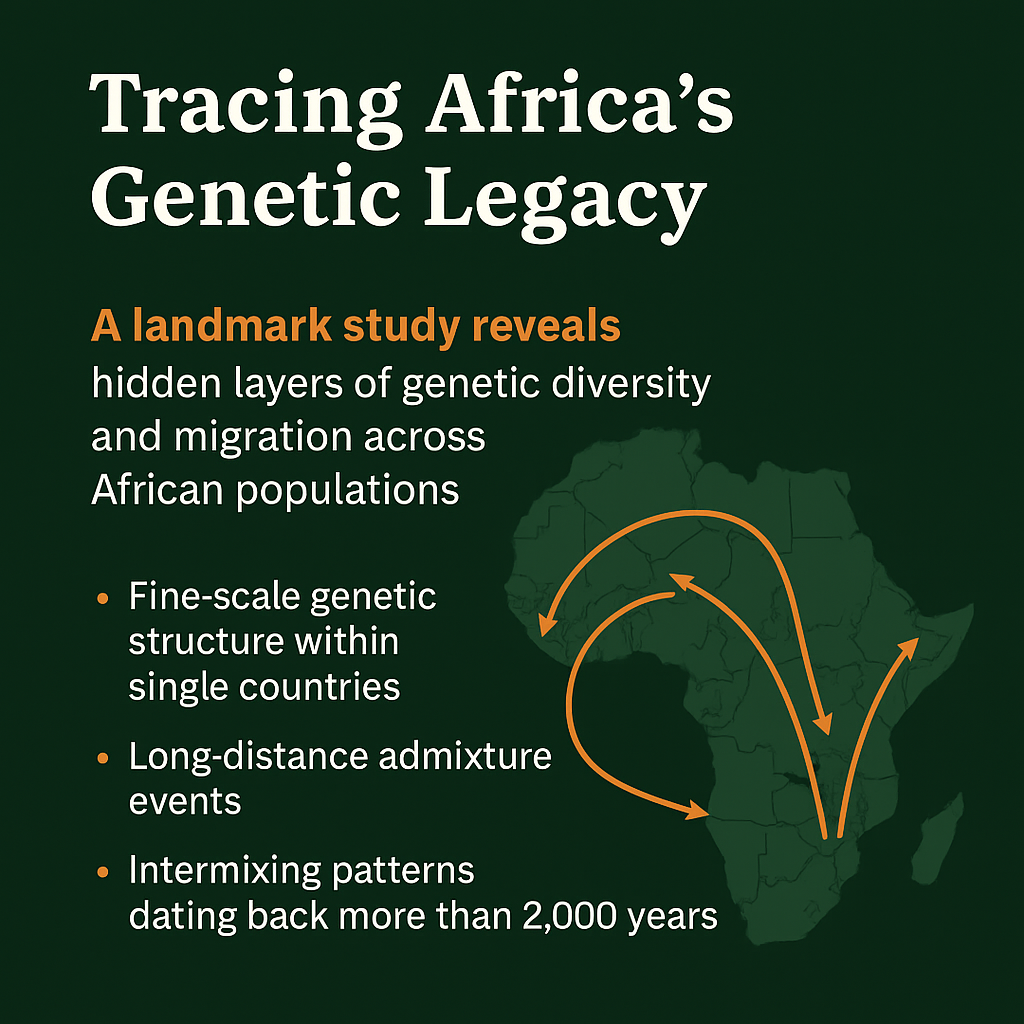A landmark study led by researchers from University College London (UCL) and published in Science Advances reveals a previously hidden depth of genetic diversity, migration, and admixture within African populations. Titled “Dense sampling of ethnic groups within African countries reveals fine-scale genetic structure and extensive historical admixture,” the research analysed 1,333 genomes from over 150 ethnic groups across Cameroon, Ghana, Nigeria, Sudan, and the Republic of the Congo.
The findings challenge the often simplistic narratives about African genetic history. The study uncovered fine-scale genetic structure within single countries, showing that even neighbouring ethnic groups may carry distinct ancestral lineages. For instance, western Cameroonian groups exhibit unique ancestry signatures reflecting the region’s long history of local kingdoms and cultural interactions.
Researchers also traced long-distance admixture events, linking populations in northern Cameroon and Sudan with distant groups, suggesting centuries of movement through trade, migration, and empire expansion. In Ghana and Nigeria, they detected intermixing patterns dating back more than 2,000 years, likely connected to shifts in climate and vegetation that encouraged population mobility and contact.
Beyond uncovering these complex patterns, the study highlights an essential truth: Africa’s genomic diversity cannot be fully understood through limited or external data. It underscores the urgency of expanding and diversifying African genomic datasets to ensure equitable representation in global genetics research.
For MyAfroDNA, this research reaffirms our mission to strengthen African-centric molecular testing and biospecimen sourcing for both research and precision medicine. Understanding these fine-scale patterns helps scientists interpret genetic variation more accurately, improving ancestry insights and health-related findings for African communities.
As Africa continues to shape the global genomic landscape, studies like this remind us that every region, community, and ancestry carries its own genetic legacy, one that deserves to be studied, respected, and represented on its own terms.
Read the full research here.


